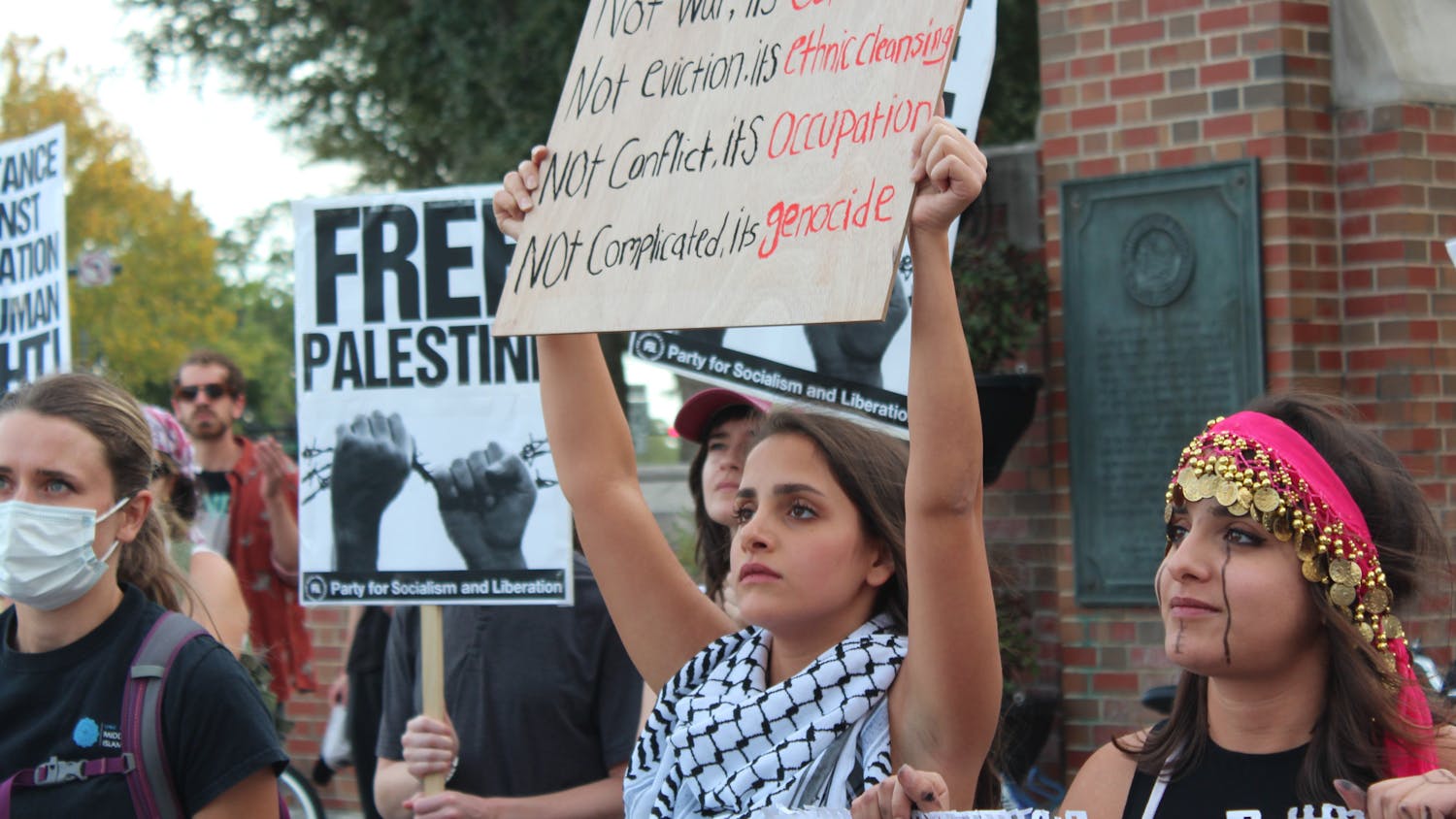Does taking a knee make you uncomfortable? Good. You know what’s beyond uncomfortable? Not knowing whether the police are there to help or hurt you.
Earlier this week, Victoria Fortier wrote a column called, “It’s time to stop kneeling during the national anthem,” which takes the stance that there are better ways to protest, such as “turn the halftime show into an equality speech seminar or sit literally at any other time.”
Sitting at literally any other time or giving a speech about equality at halftime are not nearly as impactful. Protests are effective because of their ability to disrupt. Those who would not normally pay attention are forced to because the protest has become a part of their beloved game. They wouldn’t read an article with a headline such as, “Kaepernick gives speech about police brutality during halftime.”
While kneeling during the national anthem has turned into a free speech argument, it originated with Colin Kaepernick kneeling to protest police brutality. Making this about the First Amendment distracts from the true purpose.
Speeches, tweets and articles about equality are written on a daily basis. Black activists have spoken about police brutality and other issues for hundreds of years — it didn’t start with Black Lives Matter. But have you been listening?
There hasn’t been a time in history when an oppressed group asked for something and just got it. Those in power will always feel like equality takes away from them. They won’t willingly tune into something that reminds them of their privilege — they’ll change the channel. Kaepernick’s protest is clever in that it happens right under their noses during something they would be watching anyway.
The issue is not that Kaepernick’s message is misinterpreted, it’s that people aren’t listening. People with privilege have no reason to listen unless there’s a disruption to their life, whether it’s sitting at the front of the bus or taking a knee during the national anthem before their favorite pastime. Simply being right does not mean that people with privilege will listen.
Yes, Americans do in many ways have it better than other parts of the world. But that doesn’t mean that we should settle. The U.S. may be one nation in terms of how it appears on a map, but it is divided from within. Asking people to tone down their protests so we can pretend otherwise betrays the supposed American ideals of justice and equality. Or are the flag and the national anthem more important? Why is the need for American unity more important than ensuring police don’t attack black and brown people?
At the end of the day, the flag is a piece of fabric and the national anthem is a song. What are we doing to ensure America is great for all Americans? No one died for a flag, they died for the ideas behind it.
Stop putting patriotism on this untouchable pedestal. Asking people to stand for the national anthem while unjust killings by police are still happening is oppressing people and then giving them the additional burden of keeping the country together. If disrespect is the only thing that affects change, then it’s what has to be done. If simply asking and educating was ever effective then we’d live in a much more just society than we do now.
Standing for the national anthem won’t make America better. It will make it easier for those with privilege to ignore the problems this country is facing. While they may think they have problems as well, they do not have to question the intent of the people who were sworn to protect them. The change I want to see is not more people standing up for an anthem, and I wouldn’t care if my children sat for the anthem. I would want a more just society in which no one has to worry about being discriminated against. If that means no one stands for the anthem, then so be it.
Nicole Dan is a UF journalism and political science senior. Her column appears on Mondays.





